





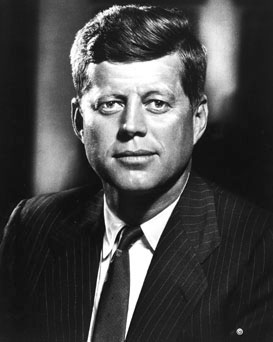
[Above: John F. Kennedy]
[Above: Hans Frank]
[Above: Anne Morrow Lindbergh]
[Above: Rudolf Hess]
[Above: Sir Stephen Henry Roberts]
...He is so transparently honest when he is weaving visions of his own creation that nobody can doubt him. He is ready, like a medieval saint, to go through fire and water for his beliefs... He sees himself as a crusader; he thinks the whole time of saving mankind. That is why he reaches such a stage of mystical exaltation when he talks about saving the world from Bolshevism. It is the old Siegfried complex once again. Just as the young German knight of old went out into the dim, dark forests to kill dragons, so he goes out to exterminate Bolshevism.'
[Above: Hans Siegel]
[Above: Johanna Wolf]
[Above: William Lyon Mackenzie King]
[Above: Joseph Goebbels]
[Above: Leon Degrelle]
[Above: Lloyd George]
[Above: Jurgen Stroop]
[Above: Sven Hedin]
[Above: Col. General Alfred Jodl]
[Above: Idi Amin Dada]
[Above: Joachim von Ribbentrop]
[Above: Muhammad Anwar El Sadat]
[Above: Norwegian author extraordinaire Knut Hamsun]
I'm not worthy to speak up for Adolf Hitler, and to any sentimental rousing his life and deeds do not invite.
Hitler was a warrior, a warrior for humankind and a preacher of the gospel of justice for all nations. He was a reforming character of the highest order, and his historical fate was that he functioned in a time of unequalled brutality, which in the end felled him.
Thus may the ordinary Western European look at Adolf Hitler. And we, his close followers, bow our heads at his death...'
[Above: Leni Riefenstahl]
[Above: Per Engdahl]
[Above: Prabhupada]
[Above: Paula Hitler]
[Above: Victor Ridder]
[Above: Dr. Noureddine Tarraf]
[Above: Hermann Göring]
[Above: George Orwell]
[Above: Hamburger Zeitung]
[Above: Rev. Franklin Nathaniel Daniel Buchman]
[Above: Hans-Ulrich Rudel]
[Above: James Addison Baker]
[Above: Gertrud Sholtz-Klink]
[Above: Louis Bertrand]
[Above: Arno Breker]
[Above: Ben Klassen]
[Above: Nicolaus von Below]
[Above: Harold Sidney Harmsworth]
[Above: Baldur von Schirach]
[Above: Louis Farrakhan]
[Above: Julius Streicher]
...for the first time, I saw Adolf Hitler and heard him speak. I felt it: in this moment, fate had called me for the second time! I rushed through the cheering masses to the podium and now stood in front of him: "Mr. Hitler! I am Julius Streicher! At this hour I know it: I can only be a helper, but you are the Führer! I hereby hand over to you the folk movement created by me in Franconia.
Questioning, he gazed at me from the blue depth of his eyes. There were long seconds. But then, he took my hands with great warmth: "Streicher, I thank you!"
So fate had called me the second time. But this time it was the greatest call in my life.'
[Above: Carl Jung]
[Above: Pat Buchanan]
[Above: Florentine Rost van Tonningen]
[Above: Ferdinand Schörner]
[Above: Rosa Mitterer]
[Above: George Lincoln Rockwell]
[Above: Marcel Déat]
[Above: Heinrich Himmler]
Having read these words, Himmler added: This passage is directly related to our Führer. He did arise during the time when the Germans were in the deepest distress and when they did not see any way out. He belongs to these great figures of light (Lichtgestalt). One of the greatest figures of light reincarnated himself in our Führer.'
[Above: Karl H. von Wiegand]
Aged 34, medium tall, wiry, slender, dark hair, cropped toothbrush mustache, eyes that spurt fire when in action, straight Grecian nose, finely chiseled features, with complexion so remarkably delicate that many a woman would be proud to possess it — with all a bearing that creates an impression of dynamic energy well under control...
This is Hitler... He is one of the most interesting characters I have met...'
[Above: Robert Ley]
[Above: George Lansbury]
[Above: Adolf Hühnlein]
[Above: Alois Spaniol]
[Above: Miguel Serrano]
[Above: Dr. William L. Pierce]
-John F. Kennedy, 35th President of the United States of America, diary, European trip, 1937: July 1st through September 3rd.

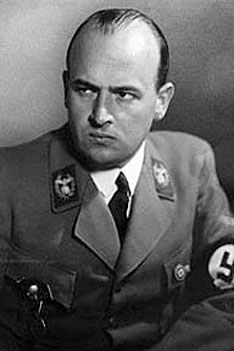
-Hans Frank, Governor-General of the General Government (1939 - 1945)

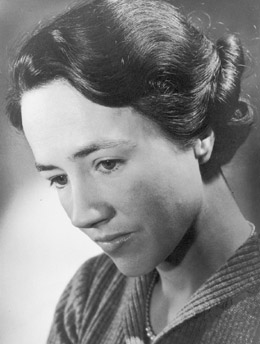
-Anne Morrow Lindbergh, wife of famous aviation pioneer Charles Lindbergh

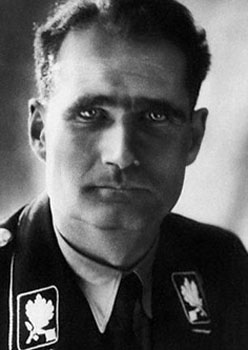
-Rudolf Hess, Deputy Führer to Adolf Hitler (1933 - 1941)
-Rudolf Hess, from a 1934 speech.
The figure of the Führer will stand like a beacon over the centuries, Adolf Hitler will be honored as one of the greatest pathfinders and benefactors of mankind.'
-Rudolf Hess, 1947.

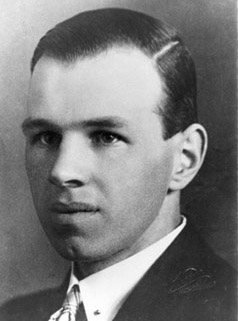
-Sir Stephen Henry Roberts (February 16, 1901 - 1971) was an Australian academic, author, historian, international analyst and university vice-chancellor. Roberts visited Germany from 1935-1937 and interviewed Adolf Hitler, writing his impressions for his 1937 book 'The House That Hitler Built'. The above quotation is from said book.

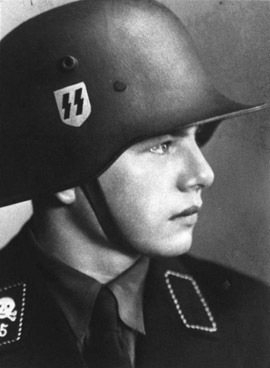
-Hans Siegel, Sturmbannführer (Major) in the Waffen-SS during WWII. One of the war's bravest soldiers, he was awarded the Knight's Cross of the Iron Cross, and was wounded a whopping nine times in combat.

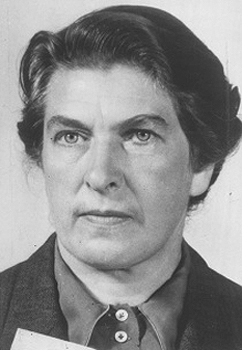
In addition, his intelligence, his personality and his charm were irresistible for men and for women alike. He was like a tidal wave when you were with him.'
-Johanna Wolf,
February 24, 1948.

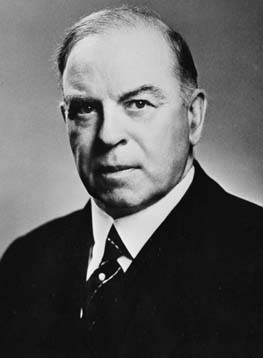
-William Lyon Mackenzie King, prime minister of Canada for 18½ years, taken from his diary entry of June 29, 1937.

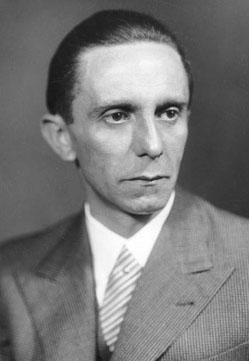
-Joseph Goebbels, Reich Minister of Public Enlightenment and Propaganda and Chancellor of Germany
-Joseph Goebbels, as written in his diary, circa 1925

-Leon Degrelle, 'The Enigma of Hitler', Waffen-SS Standartenführer and Walloonian Rexist Party leader
-Leon Degrelle, 'The Enigma of Hitler'

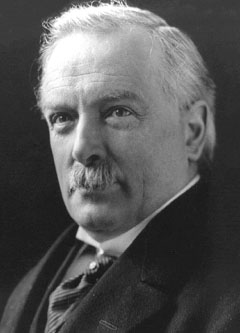
- Lloyd George, British premier during World War I, after a visit to Germany in 1936, was quoted in the Daily Telegraph of 22nd September of that year
- Lloyd George, In the Service for Germany

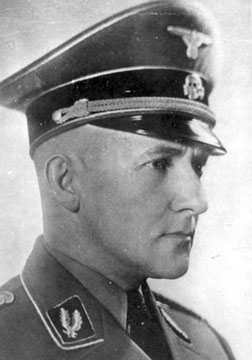
-Jurgen Stroop, Vizefeldwebel SS-Gruppenführer and Generalleutnant of Waffen-SS and Polizei, commenting on the cowardly July 20, 1944 bomb plot on Adolf Hitler's life.

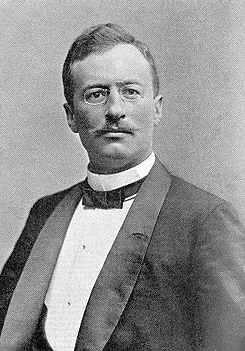
-Sven Hedin speaking of Adolf Hitler. Hedin was an incredibly famous Swedish geographer, topographer, explorer, photographer, travel writer, and illustrator of his own works.

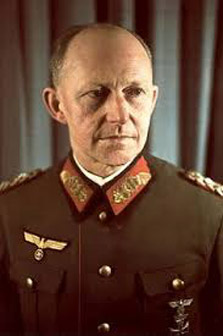
-Col. General Alfred Jodl before the Allied tribunal at Nuremberg in 1946, speaking of Adolf Hitler
-Alfred Jodl, Chief of Operations Staff of the Armed Forces High Command, The Artist Within the Warlord, pg.105, by Carolyn Yeager & Wilhelm Kriessmann,

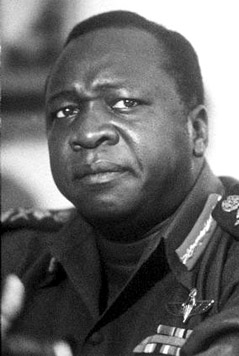
-Idi Amin Dada, boxer, soldier and President of Uganda (1971 to 1979).
Despite negative propaganda from his enemies Idi has been described by a former British commander as
'an incredible person who certainly isn't mad - very shrewd, very cunning and a born leader.'

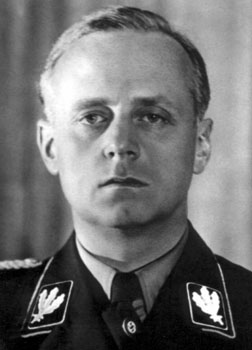
-Joachim von Ribbentrop, German Ambassador to the Court of St. James, loyal to the end, even after the Allied International Military Tribunal found him guilty on all counts and sentenced to death.

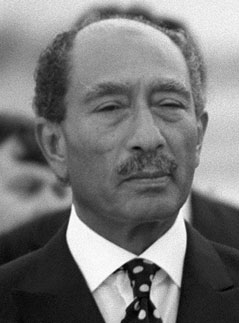
Even if you appear to have been defeated, in reality you are the victor.'
-Muhammad Anwar El Sadat, third President of Egypt (December 25, 1918 – October 6, 1981)

-Knut Hamsun, at the age of 86, the Nobel laureate novelist wrote this eulogy of Adolf Hitler in the newspaper Aftenposten in 1945.

Hitler looked at me in surprise, then smiled and said:
'Yes – I believe in a divine power, not in the dogmas of the Church, although I consider them necessary. I believe in God and in a divine destiny.'
He turned away then and, folding his hands, gazed into the distance.
'And when the time is ripe, a new Messiah will come – he doesn't have to be a Christian, but he will found a new religion that will change the world.'
-Leni Riefenstahl, Memoirs, pg. 211.

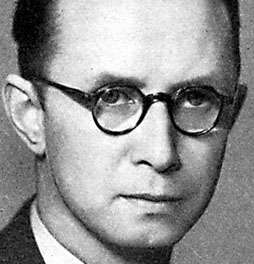
-Written on April 20, 1944, on the occasion of Hitler's 55th birthday, by Swedish National Socialist and author Per Engdahl (1909–1994).

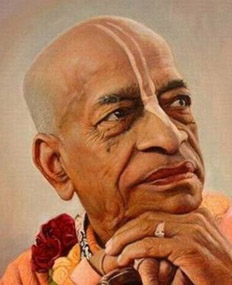
-Prabhupada (1896-1977), Morning Walk, October 8, 1972, Berkeley.
Prabhupada is widely regarded as the foremost Vedic scholar, translator, and teacher of the modern era.

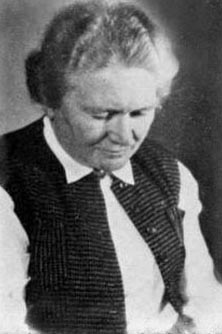
-'Mein Bruder' by Paula Hitler, Adolf Hitler's sister, Berchtesgaden, May 1957

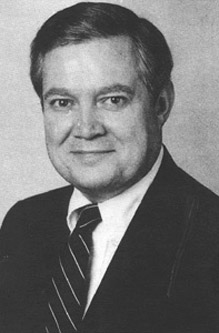
-Victor Ridder, 1933, after spending eight weeks in Germany and meeting Adolf Hitler. Ridder was a civic leader and newspaper publisher of the New Yorker Staats-Zeitung, a highly influential daily paper among German-Americans.

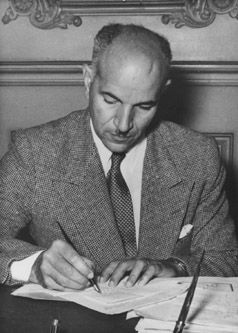
-Dr. Noureddine Tarraf, Egyptian Minister of Health, 1950s

-Hermann Göring, President of the Reichstag and WWI hero pilot
-Hermann Göring

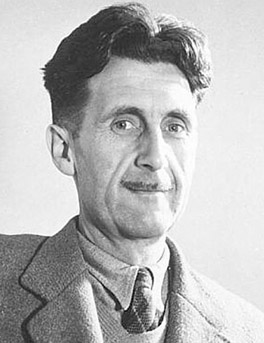
-George Orwell, reviewing Mein Kampf, 1940.

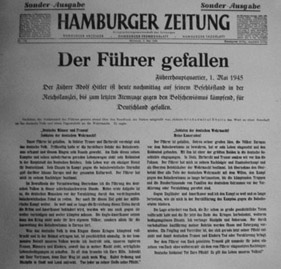
His life is fulfilled. He began by
fighting for his people, and he ended that way. A life of battle.'
-Hermann Okraß, 'Abschied von Hitler' (Farewell to Hitler), Hamburger Zeitung, May 2, 1945

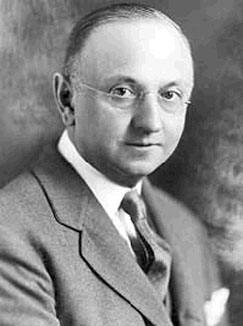
-Rev. Franklin Nathaniel Daniel Buchman

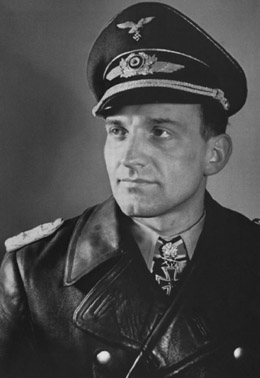
-Hans-Ulrich Rudel, Stuka dive-bomber pilot during World War II. The most highly decorated German serviceman of the war. A true hero of heroes.

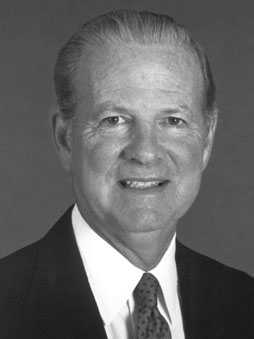
-James Addison Baker, Secretary of State of the United States

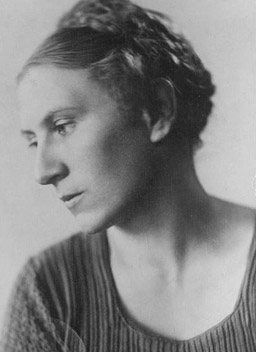
-Gertrud Sholtz-Klink, head of the National Socialist Women's League (1934 - 1945)

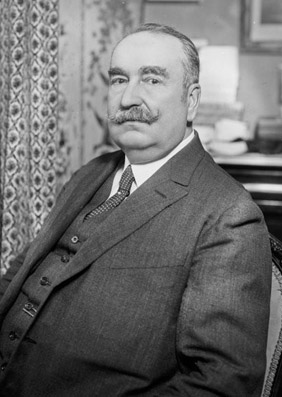
-Louis Bertrand, French journalist, referring to Adolf Hitler at the 1937 Reich Party rally in Nuremberg

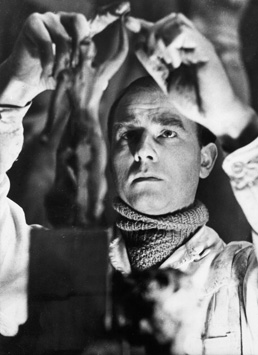
-Arno Breker, architect and sculptor

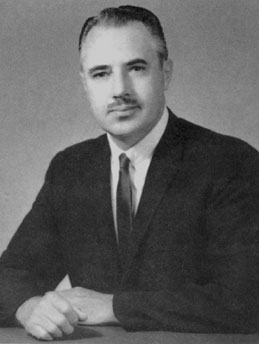
-From a sermon by Rev. Ben Klassen, 1989

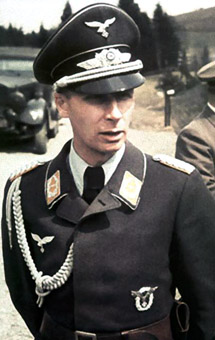
-Nicolaus von Below, Hitler's Luftwaffe Adjutant, from his book 'At Hitler's Side', pg 241, (c)2001

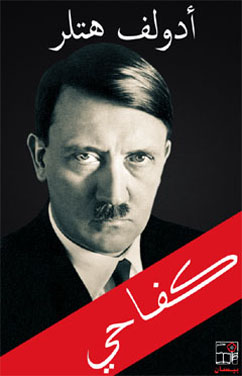

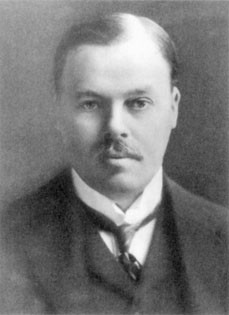
No words can describe his politeness; he disarms men as well as women and can win both at any time with his conciliatory, pleasant smile. He is a man of rare culture. His knowledge of music, the arts and architecture is profound.'
-Harold Sidney Harmsworth, 1st Viscount Rothermere, newspaper pioneer, 'Warnings and Predictions', p. 180 - 183. Rothermere was a deep admirer of Adolf Hitler. The London 'Express' newspaper quoted him as addressing him as 'My dear Führer' and 'Adolf the Great'. He described Adolf Hitler's work as 'great and superhuman.'

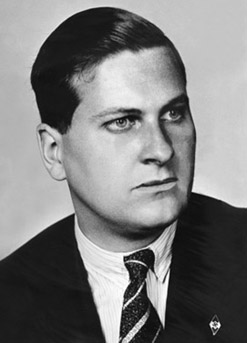
-Baldur von Schirach.

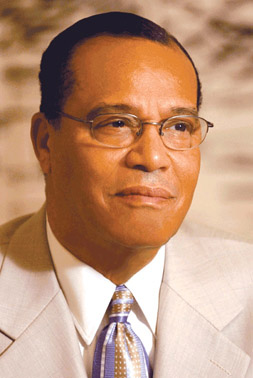
-Hon. Minister Louis Farrakhan, in response to being called a "Black Hitler," Farrakhan responded during a March 11, 1984 speech broadcast on a Chicago radio station.

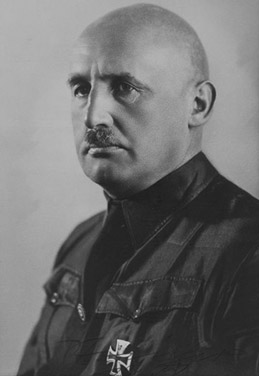
-Julius Streicher's Political Testament: My Affirmation, Mondorf, House of Internees, August 3, 1945

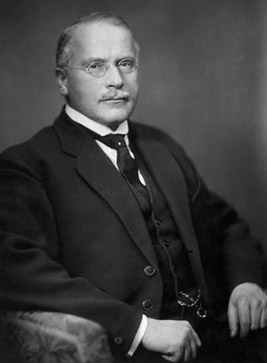
-Psychiatrist and philosopher Carl Jung
-Carl Jung, 'The Observer' of London, October 1936

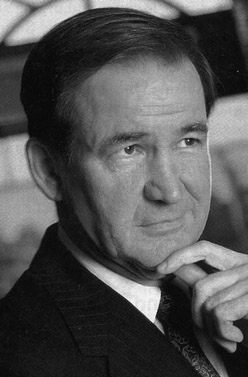
-From a 1977 column discussing John Toland's biography of Hitler

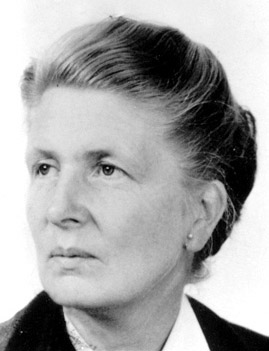
-Florentine Rost van Tonningen, Ninth IHR Conference, February 18-20, 1989, Huntington Beach, California.

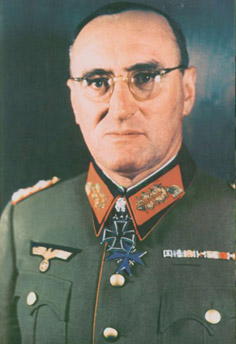
-General Field Marshal and Commander-in-Chief of the German Army Ferdinand Schörner

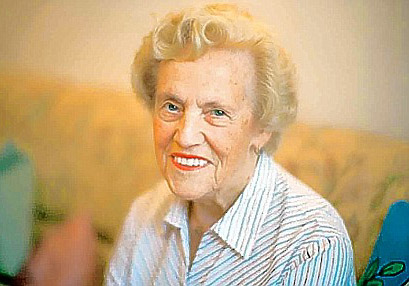
-Rosa Mitterer (August 13, 1917 - July 15, 2010), former maid of Adolf Hitler.

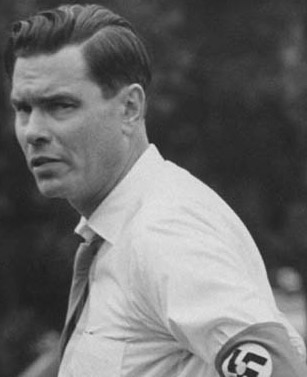
My objective is to carry out what Hitler started, not to model my own person on Hitler because this is impossible.'
-Commander George Lincoln Rockwell.

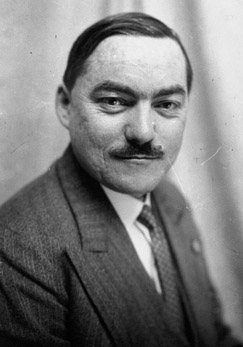
He works with his hands, he
is an unknown infantryman of the Great War: he did not become master and chief by way of military fortune (...),
weapons did not help him into power.
So what is it exactly? The slow revelation of a people's identity engendered little by little
thanks to Hitler's political discourse: the irresistible expansion of this warmth and of this
flame within him which seizes
and embraces millions of men.
He commands (...) primarily because he is loved, because the masses recognize themselves in him and discover themselves
through him, remembering that they were pulled from the abyss by the force of attraction and hope that resided in him.'
-Marcel Déat, Aspects of a Great Destiny

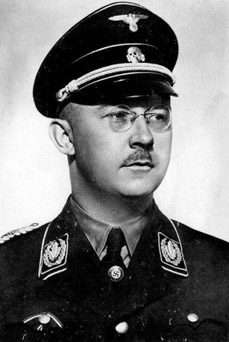
-Heinrich Himmler: The Nazi Hindu, in an interview with German cultural philosophers and writers Victor and Victoria Trimondi by the International Business Times, April 10, 2012

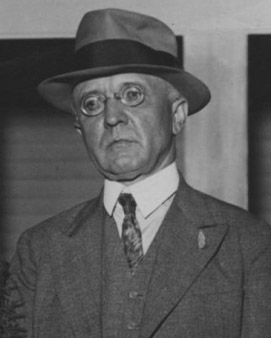
-Hearst Newspapers foreign correspondent Karl H. von Wiegand, November 1922

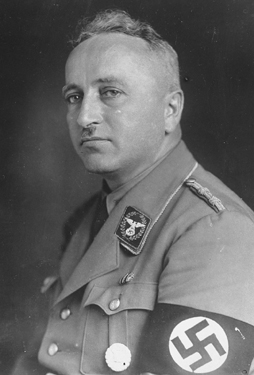
-Robert Ley

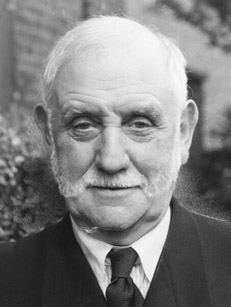
-George Lansbury, British politician and social reformer, impressions after meeting Adolf Hitler in April 1937

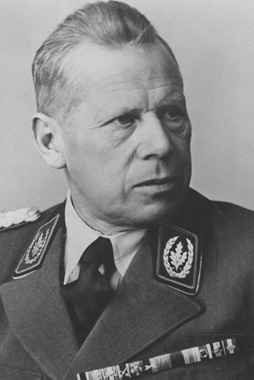
-Adolf Hühnlein, leader of The National Socialist Motor Corps (NSKK)

-Alois Spaniol, January 1935 speech

-Miguel Serrano

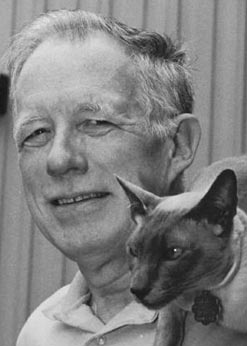
-Dr. William L. Pierce, author and leader of the National Alliance, from the article 'Adolf Hitler — The Measure of Greatness'
